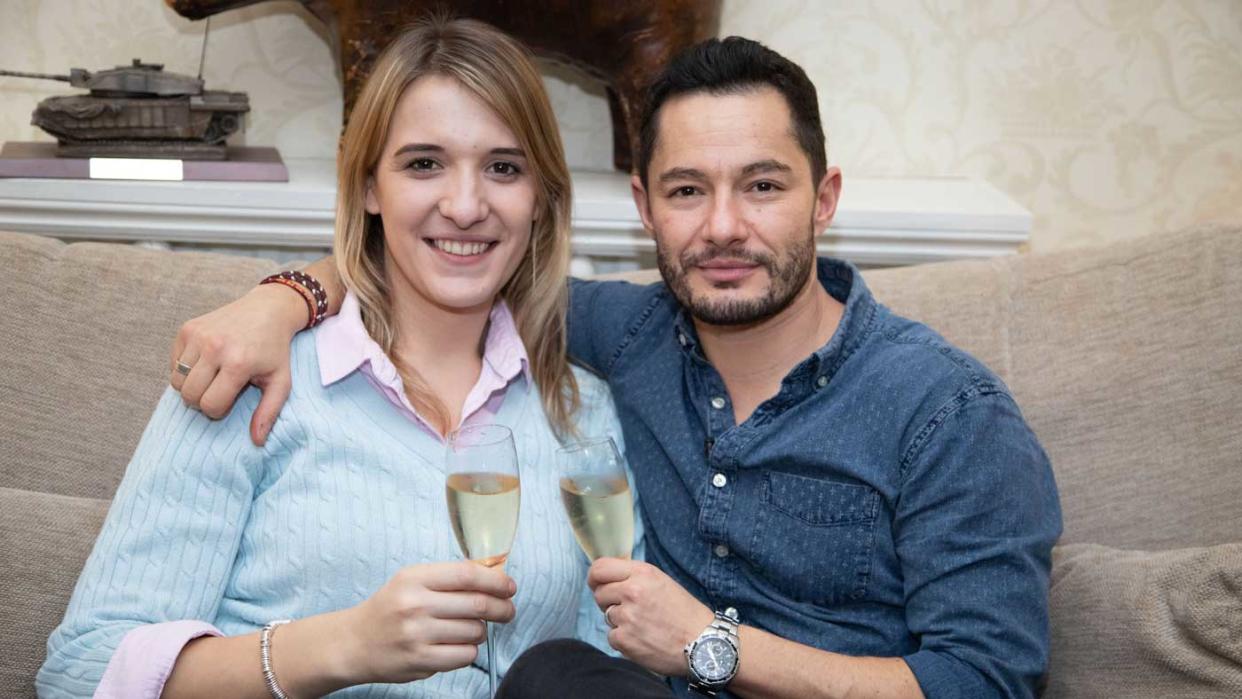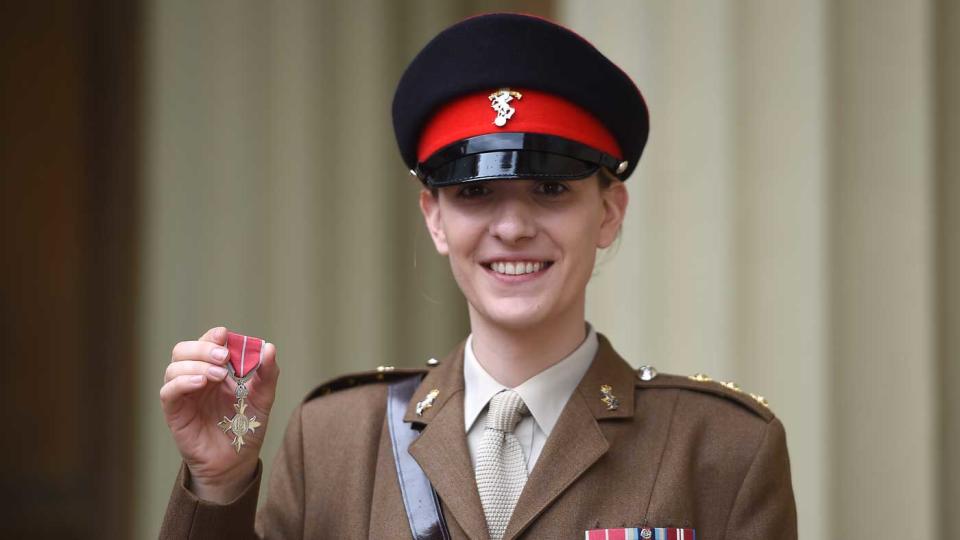How to speak to transgender people with respect

You’ve probably heard that this year marks 50 years since the Stonewall riots: an event seen as the dawn of the LGBTQ Liberation movement.
What you might not know is that the transgender community played a leading role that night, and yet they continue to experience some of the worst threats of violence and marginalisation – even from within the LGBT community, including a protest against transgender women by a splinter group at last year’s London Pride.
Jake and Hannah Graf, newlyweds who campaign widely for transgender education and rights, opened up about their life on this week’s episode of White Wine Question Time.
As patrons of charities like Mermaids, which supports transgender children and their families, the pair do a lot of advocacy work: helping to bring understanding of the issues to a largely ignorant public.
“Most people don’t know someone trans,” Jake told Kate. “If you don’t know one of us, then you might fall into that trap of believing what the evil British media will tell you about us: that we are predatory, that we are mentally ill, that we don’t know our own minds, that we’re confused people trying to live a lie. Of course, we know that none of this is true.”

Mermaids UK describes trans as an ‘umbrella term’. It includes cross-dressers, transgender and transsexual people, as well anyone else who is any way gender variant. Transgender people experience conflict between their physical and psychological gender. This can be a traumatising experience – especially when going through puberty – and most trans people struggle with questions about the best way to live their lives.
And if that’s not enough, most trans people also face a barrage of questions ranging from their what this means about their sexuality to what’s in their pants. Here’s how to be an ally instead of another thing to worry about.
Talk to them
As such a well-known couple, Hannah and Jake get approached by members of the public on a regular basis. They positively encourage people coming up to them and asking questions, but just request that people are respectful.
“Come over, have a chat, a photo, whatever,” Hannah told Wales Online. “As long as you’re asking a question in a respectful way, we’re fine.”
But don’t ask about their genitals
“We’ve literally been sat at dinner with different journalists from different publications. You’re enjoying a duck confit and it’s all very convivial and very pleasant and they’ll turn and say so tell us about your genitals” Jake told Kate Thornton
“Obviously the room goes silent and you think come on, would you ask that of anyone else that you were interviewing?”
You wouldn’t ask your cis friends (people whose gender identity matches the sex they were assigned at birth) about their private parts. So why ask a trans person?
READ MORE
Transgender couple ready to start a family call out UK surrogacy law
Tory MPs twice as likely as public to oppose giving transgender people the right to self-identify
Jake Graf: “I am proud Stonewall happened as a result of courageous, outspoken trans women”
Beware of old names and pronouns
Calling someone by their pre-transition name is called deadnaming. It may seem harmless to you, but it’s a sure way to hurt a trans person. Remember, pre-transition may have been an awful place for that person.
The same goes for sharing old pictures without permission.
Jake and Hannah explained to Kate on White Wine Question Time that their parents still call them by the wrong pronouns occasionally.
“My mum still very sweetly mis-genders me... with no malice because that’s how they’ve always known us,” said Jake
Hannah agrees that it’s habit more than trying to be hurtful. “They brought us up that way and lived with us for decades,” she told Kate.
Respect the pronouns they use
If you aren’t sure how somebody wishes to be referred to, stick to gender neutral pronouns such as they, them or their. If you know the person, you can ask – discreetly, and without putting them in a difficult or unsafe situation. Once you do know their identity, respect it and use the pronouns they use.
As Jake says on his Instagram account “If you get it wrong on purpose, ask yourself why it bothers you so much to acknowledge and respect who we are? What does it cost you to address us properly? And how would you feel if someone tried to deny who you knew yourself to be?”
Be careful as well of the language you use when you talk to someone about their life pre-transition. Don’t say “when you were a girl”, instead say “before you transitioned” or “when you were living as a girl”.

Respect their privacy
Being trans in a predominantly cis world is difficult, especially with the levels of transphobia out there. The BBC recently reported that the number of transgender hate crimes recorded by police forces in England, Scotland and Wales has risen by 81%.
Just because you know someone is trans, doesn’t mean they want you to tell the world. Coming out isn’t always a positive experience, so don’t assume that everyone is open to sharing. It’s also that’s person’s story to share, not yours.
Don’t make sweeping generalisations
Don’t refer to trans people as a whole – they are individual people with different opinions, characteristics and passions. Just because you know one trans person, doesn’t mean you know or understand the whole community.
Apologise if you make a mistake
If you do use the wrong pronoun or call someone by the wrong name, apologise.
“Jake and I are both very clear we don’t want people stepping on eggshells,” Hannah told Wales Online. “If you say something wrong, but it was said with the right intentions we won’t take offence, but we will explain why it was wrong.”
Remember, we’re all human!
“There’s a real undercurrent of transphobia in this country. But we are just human beings getting on with our lives,” explained Hannah in an interview with The Mirror.
“We’re just like you. We go to work, we’re in love, want a family and that’s all we’re trying to do."
With that in mind, talk to trans people about other things rather than their gender such as the movies or what they had for dinner last night. Yes, it really is that easy.


